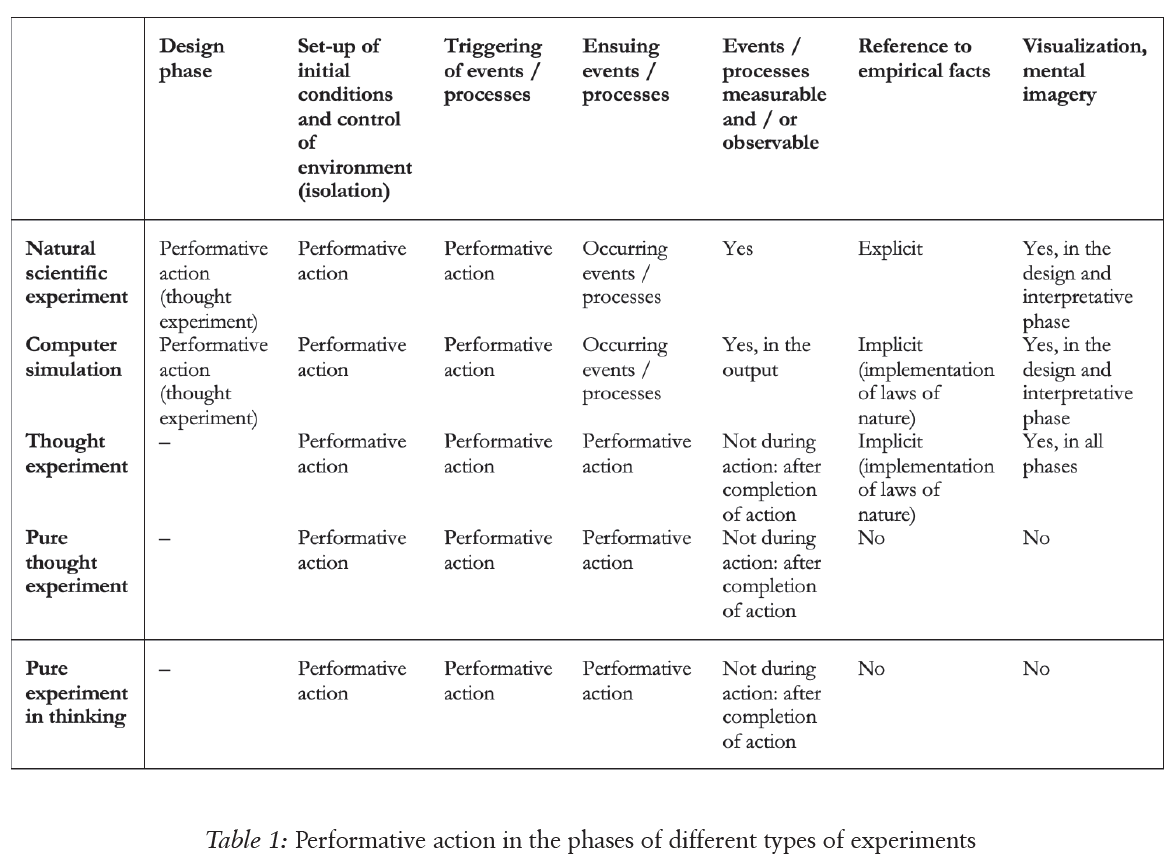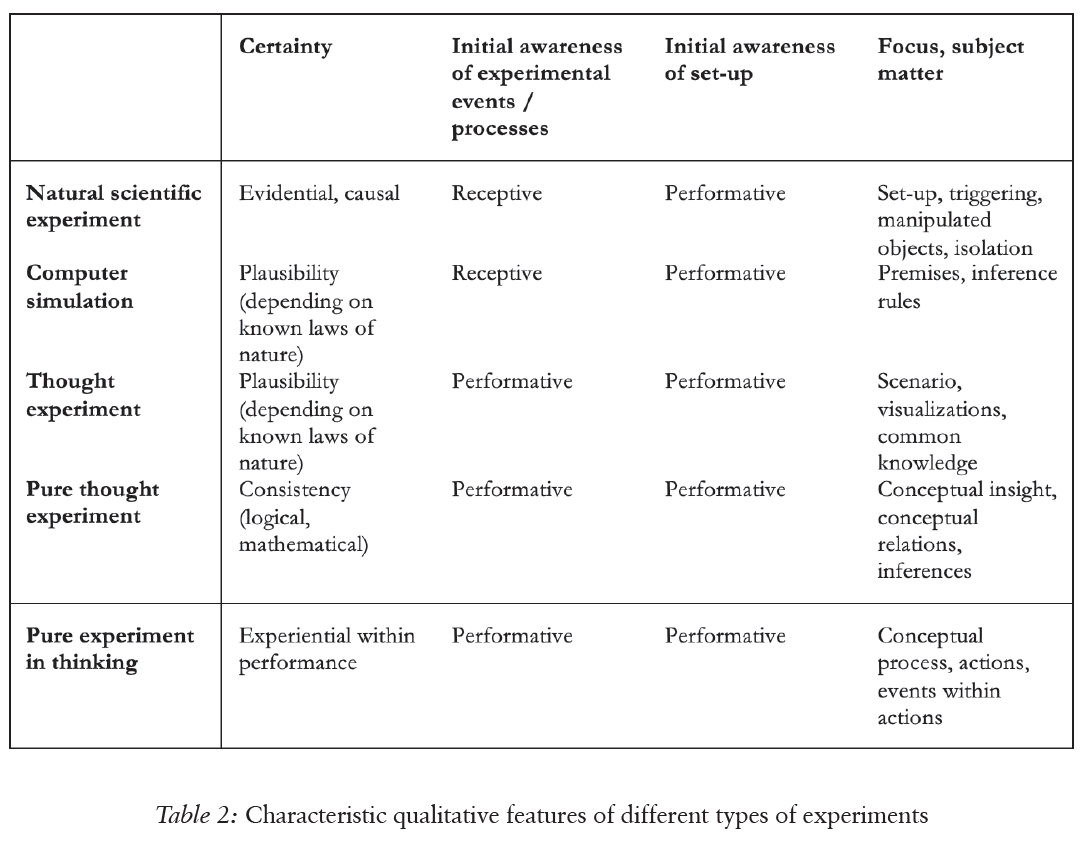Performance and Participation in Scientific Experimentation
An Exploration of Human Thinking as Mental Action, from Scientific Experimentation to Systematic Thought Experiments
Export Article Citation as
- Plain text
- BibTeX
- RIS format
- Download price : € 6.00
Abstract:
Experimentation is at the core of the natural sciences. Experiments are done for different reasons. They differ substantially from observations, where naturally occurring processes are taken note of or measured. Experiments instantiate the specific conditions that are necessary for isolating an experimental setting from its environment and manipulating the course of events in some way. This paper focuses on the role of human thinking as a mental action in the process of experimentation. In many cases, human action, in particular mental action, is taken for granted during experimentation, and the analysis tends to focus on questions of causality, the type of instruments and materials used, etc. This paper proposes to broaden the focus in the analysis of scientific experimentation, by taking mental actions into consideration: first by considering thought experiments, then pure thought experiments, and eventually what we might call (pure) experiments in thinking. Thinking is something that all human beings are capable of and, therefore, one can explore it systematically oneself. This paper outlines what the opportunities for such first-person experimentation are and how they can contribute to the enquiry of scientific experimentation.

